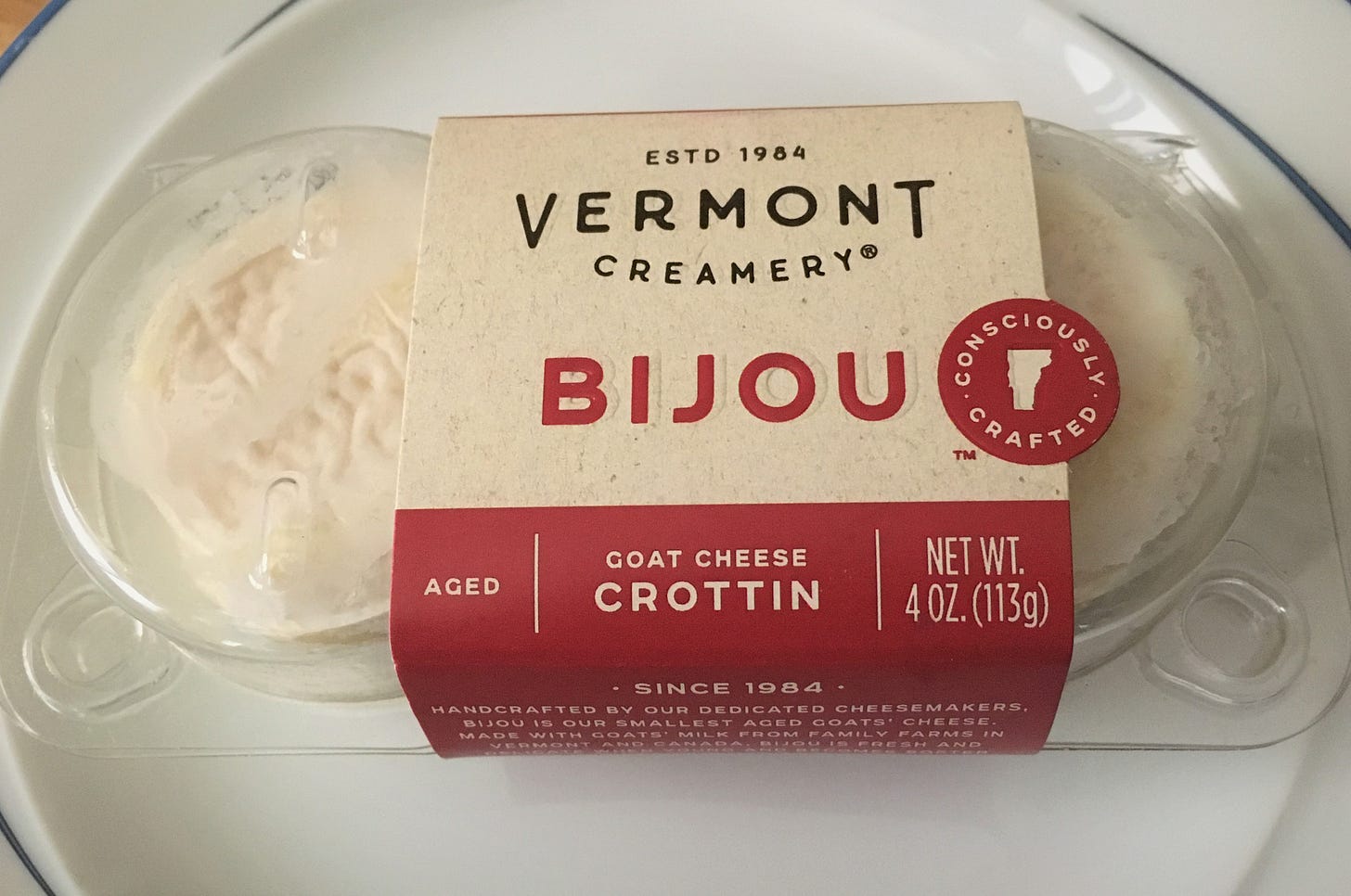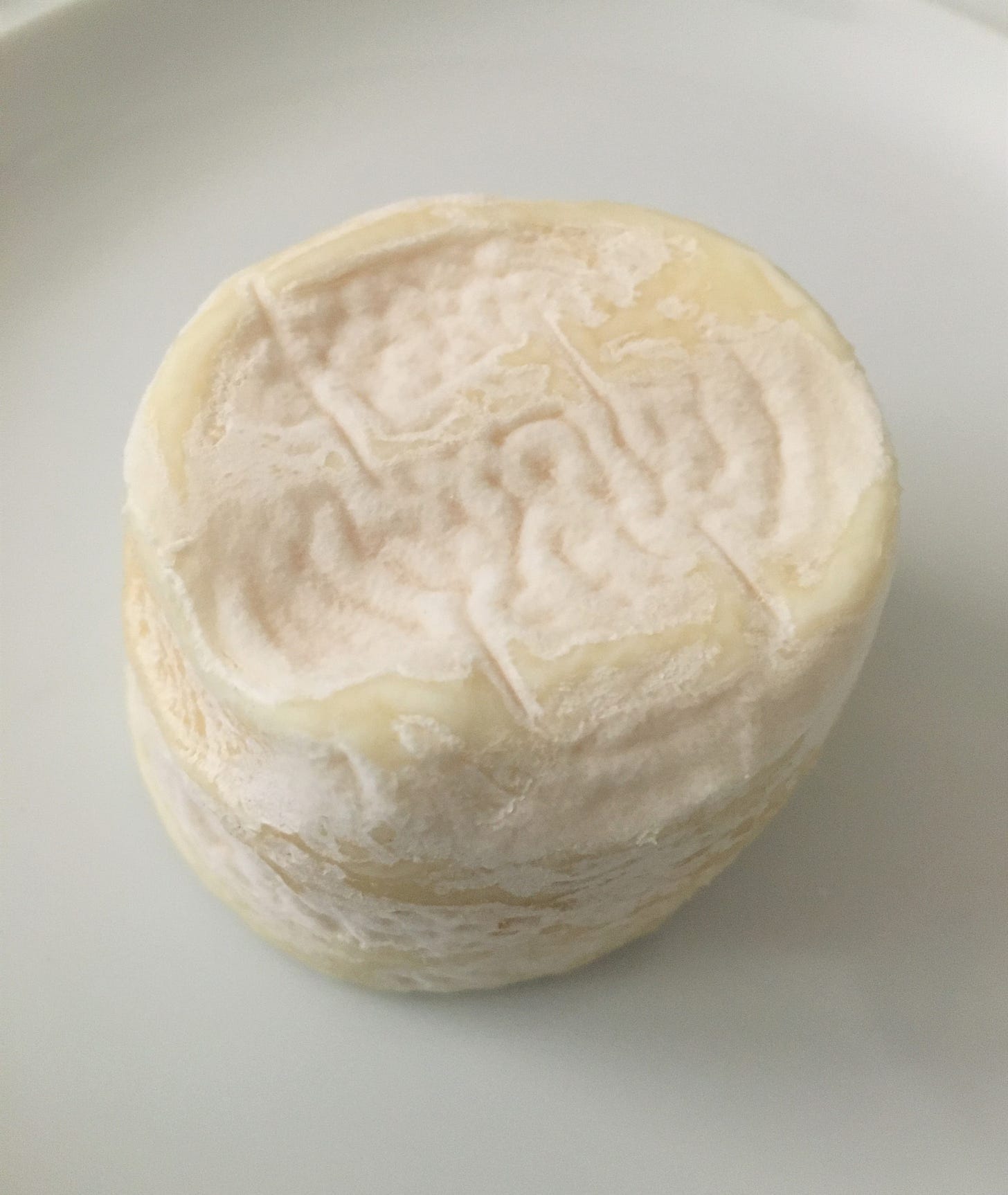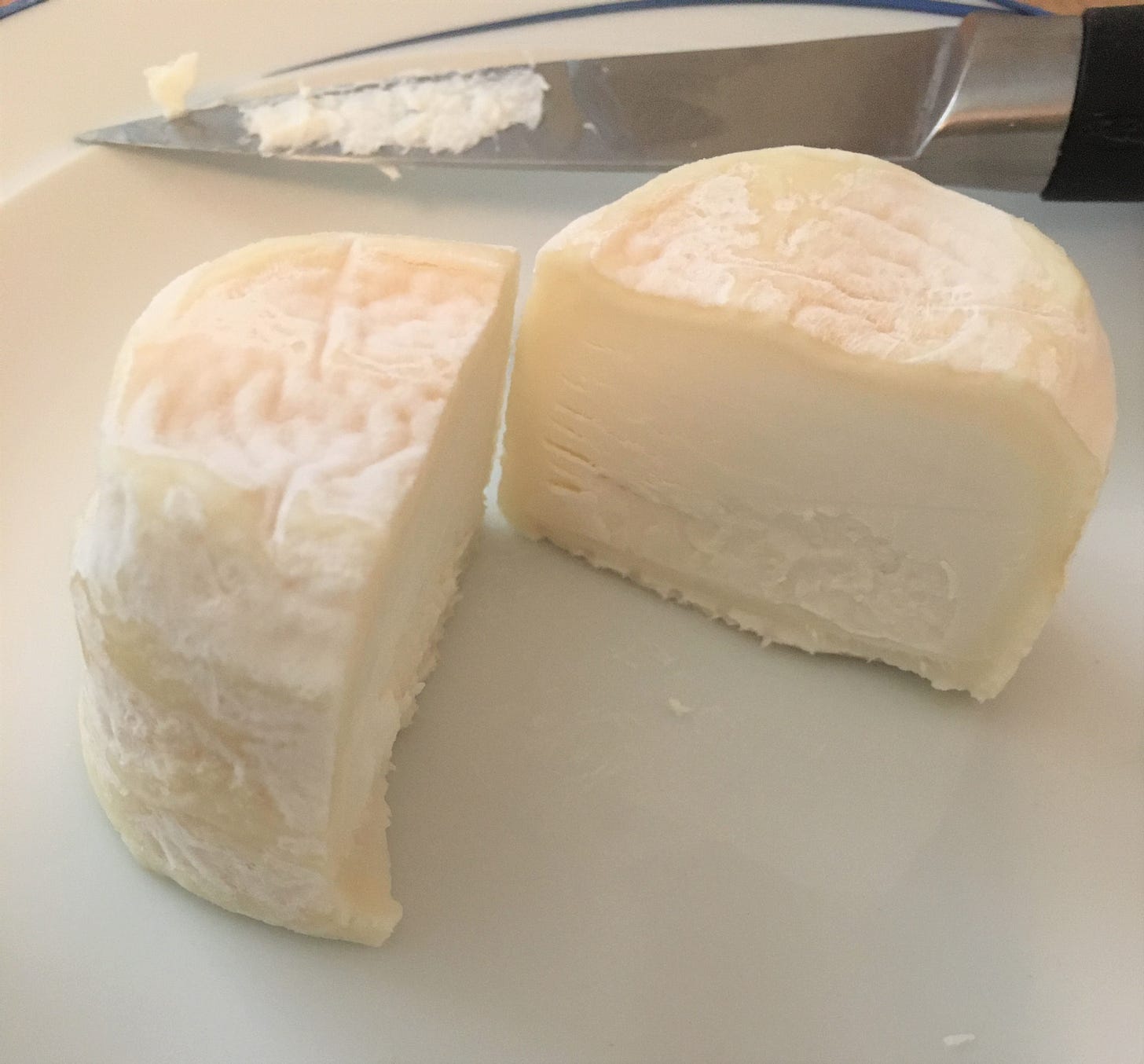Bijou goat milk cheese is quite cute.
Some time ago, I reviewed an interesting cheese from Vermont Creamery called Bonne Bouche, an aged goat's milk cheese with ash on its surface. In sharp contrast to the intimidating look of a deeply wrinkly cheese covered in black soot that accentuates the crevasses, Bijou is an angelic petite white button that's sold in pairs, two perfect twins sitting side-by-side nestled in a small carton. It's only with an up-close viewing that the small wrinkles on the surface of this cheese are apparent. From afar, the fromage is inviting, pretty even. It's not surprising that a cheese this good-looking was born in the beautiful state of Vermont.
Here in Colorado with over 50 mountains exceeding 14,000 feet, we look at 4,000-foot formations, as beautiful as they are, more as hills than mountains, but Vermont Creamery sits in what’s called the Green Mountains, which really are green or look so, even in the winter. Founded in 1984 by Allison Hooper and Bob Reese, the creamery became B Corp certified in 2014. Not only is it considered one of the best places to work in the state, voted by Vermont Business Magazine, it supports family farms in the area and promotes sustainability. The company has won over 100 awards for its cheese-making skills, and in 2019, Bijou took top honors at the American Cheese Society Competition, where Vermont Creamery took home a total of six awards.
From their website:
Allison learned how to make cheese during an internship on a farm in Brittany, France. Bob was working for the Vermont Department of Agriculture and charged with organizing a dinner featuring all Vermont-made products. When a French chef requested fresh goat cheese, Bob scrambled to find a local producer. He asked Allison, who was working in a dairy lab and milking goats in Brookfield, to make the cheese. The dinner was a success and the cheese was a hit; Vermont Creamery was born that night.
In the 34 years since the improbable business partners made their first goat cheese, a lot has changed. But the more things change at Vermont Creamery, the more they stay the same.
We’re still here in Vermont, making consciously-crafted, delicious dairy that reflects who we are and what we care about; we’ve taken the time to perfect every detail of what we make. Our cheeses and butter have won hundreds of national and international awards, our team remains our most valuable resource, and we still put taste above all. You’ll never eat anything we don’t believe in.
Bijou means "jewel" in French but has come to mean "small and elegant" in English. Each two-ounce button is made using fresh pasteurized goat's milk and microbial rennet. Once the curds have separated from the whey, they are ladled by hand and allowed to coagulate and slowly drain overnight in cheesecloth, a traditional method of cheese making. This Crottin-style cheese is then aged. What so many reviews leave out regarding Bijou is that this is a Geotrichum-rinded cheese. The wrinkles that develop during the aging process are due to the addition of Geotrichum Candidum, which usually comes in a mold powder. Geotrichum is a genus of fungi that includes over 100 species, many of which I'm sure you would rather not hear about and should probably stay away from. It was recently discovered that Geotrichum Candidum always clusters with yeasts, but when it comes to cheese, Geotrichum Candidum behaves more like a mold, producing lipases, enzymes that bind to fat globules and then break them down, releasing fatty acids. This reaction is what causes all the fun stuff to happen in cheese. It's associated with the aroma that people either love or hate, the interesting texture, and, of course, the taste of the cheese. Geotrichum-rinded cheeses are distinct because they have a wrinkly surface.
While this button of cheese is tres petite and doesn't give off any overly strong aromas, it packs a big flavor without knocking you out with the tang of the goat's milk. This soft-ripened cheese is mild with definite milky notes. Early in the aging process, it tastes sweet, very slightly nutty, yeasty, and tangy. Under the thin, wrinkly rind, the center is firm and has a pasty mouthfeel. As the product ages, the flavors intensify, and hints of hay and wild mushrooms emerge. There's a noticeable dash of salt that's not unpleasant. Overall, it's well balanced and intriguing. Past its prime, like most soft-ripened cheese, it will develop a slight ammonia flavor.
It's very tempting to eat this cheese in one or two bites, but it's soft enough that it can be spread on a warm crusty baguette or served on Raincoast rosemary and pecan crackers. It's versatile enough to pair well with either sweet or savory accompaniments. Try it cut into wedges in a green salad or serve it on a cheese board with fresh fruits and roasted nuts. Though it takes away from the cuteness factor, it's a great cheese on grilled sandwiches and can be used in other baked dishes. A way to keep the cheese looking adorable is to bake it in a mini crust and serve it with cherry preserves or fig jam.
Pair Bijou with Chardonnay, Viognier, Sangiovese, Syrah, Rose, Blanc de Blanc Champagne, Cabernet Franc, Chenin Blanc, or a not too sweet ruby Port. Vermont Creamery suggests an apple cider beer, which sounds perfect, but you can also try it with an IPA or wheat beer.






